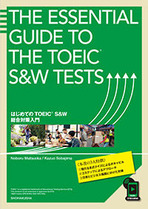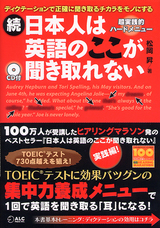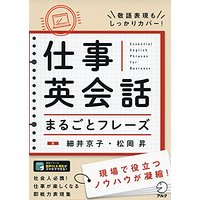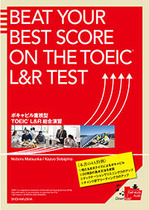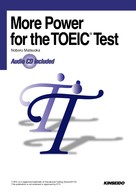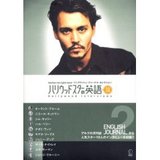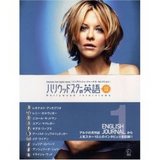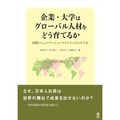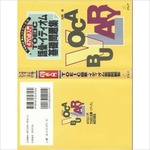こんにちは、松岡昇です。暑い、とにかく、暑い。朝から晩まで暑い。How are you doing?
さて金曜日ですので、恒例の荒磯芳行先生による Tune Up Your Speaking & Writing の Lesson 13 (参考訳・解説) をアップします。課題をまだやっていない方は、まず自分なりの英文を作って、それから参考訳と解説をお読みください。
【Lesson 13】 「携帯電話」(課題)------------------------------------
(1)まずは、日本文を英語にして言ってみましょう。
(2)次に、下の参考語句を参照しましょう。
(3)もう一度、日本文を英語にして言ってみましょう。
(4)最後に英語で書いてみましょう。
 【課題文】
【課題文】
携帯電話は、最初は主にビジネスマンによって使用されていました。しかし、今や携帯電話は私たちのほとんどの日常生活の中で不可欠なものになっています。今日では、ビジネスマンは携帯電話なしで仕事をするなど夢にも思わないでしょう。彼らは「携帯」をアポイントメントを取り付けたり、情報を収集したり、同僚と連絡を取るのに使います。
しかし、現在、携帯電話の最大の市場を占めるのは若者です。彼らは携帯電話を、主にクラスの友人たちや他の友人たちと連絡を取るのに使います。また、母親と子供もよい顧客です。近頃は、多くの子供が塾に通っていて、帰宅が夜遅くなります。親は携帯電話で子供の動きを知ることができます。
このような使用者の他に、高齢者もまた緊急事態のために携帯電話を使用します。例えば、事故にあったようなときにです。今や携帯電話を持っていない人はいないくらいになってしまいました。
【参考語句】必ずしも使う必要はありません
・cell phone
・indispensable for
・make appointments
・form the biggest market
・meanwhile
・keep track of
・in addition to
・emergencies
という課題でした。以下、参考訳と解説です。
↓
↓
【参考訳】
At first, cell phones were used mainly by businesspeople, but now they have become indispensable to most of us in our daily lives. Businesspeople today would not dream of working without a cell phone. They use their cell phones in order to make appointments, to gather information, and to contact colleagues.
But now young people form the biggest market for cell phones. They mainly use them to communicate with their classmates and other friends. Meanwhile, mothers and children are also good customers. Nowadays many children go to juku (cram school) and come back home late at night. Cell phones allow their parents to keep track of them.
In addition to these users, elderly people also use cell phones for emergencies; for example, when they have an accident. These days practically everybody has cell phones.
【解説】
 荒磯芳行です。いかがでしたか。今回もポイントを拾いながら解説をしましょう。
荒磯芳行です。いかがでしたか。今回もポイントを拾いながら解説をしましょう。
・would not dream は仮定法です。日本語にすれば 「もしビジネスマンなら...なんて夢にも考えないでしょう」 で、婉曲的な表現。do not dream も可能ですが、事実を淡々と述べることになり、味わいに欠けます。
・contact(接触する、連絡する)は他動詞。contact with ~ としないように
・meanwhile は 「一方では」 で、前述のこととは全く違う状況を述べるときに使います。Meanwhile, we have children who do not have enough to eat. (しかし、一方では、食べ物が十分にない子供もいる)。(in the) meantimeとも言えます
・「高齢者」 を表す形容詞には old、aged など色々ありますが、elderly が現在一番問題が無い語でしょう
・practically は 「事実上」 という副詞。practically every day は 「事実上/ほとんど毎日」 で、almostと言い換えられます。
【今課の注目表現】口慣しをしましょう。
1. Dictionaries are indispensable to learners of foreign languages.
2. I often dreamed of becoming a physicist like Einstein.
3. I have to make an appointment with a customer.
4. The police are gathering evidence relating to the crime.
5. She contacted the city’s tourism office for more information.
6. The children formed a big market for used clothes.
7. Their mothers did not allow the children to go out and play.
8. It is hard to keep track of what is going on.
9. In addition to soup, several salads were served.
10. Practically everybody said “yes”.
【発音(アクセント)に注意】
・indispensable
・communicate
・classmate
・meanwhile
・nowadays
・mobile
・allow
----------------------------------------------------------------------------------
いかがでしたか。それでは熱中症に気をつけて、
Be careful of heatstroke and have a nice weekend. (マッツ)
さて金曜日ですので、恒例の荒磯芳行先生による Tune Up Your Speaking & Writing の Lesson 13 (参考訳・解説) をアップします。課題をまだやっていない方は、まず自分なりの英文を作って、それから参考訳と解説をお読みください。
【Lesson 13】 「携帯電話」(課題)------------------------------------
(1)まずは、日本文を英語にして言ってみましょう。
(2)次に、下の参考語句を参照しましょう。
(3)もう一度、日本文を英語にして言ってみましょう。
(4)最後に英語で書いてみましょう。
 【課題文】
【課題文】携帯電話は、最初は主にビジネスマンによって使用されていました。しかし、今や携帯電話は私たちのほとんどの日常生活の中で不可欠なものになっています。今日では、ビジネスマンは携帯電話なしで仕事をするなど夢にも思わないでしょう。彼らは「携帯」をアポイントメントを取り付けたり、情報を収集したり、同僚と連絡を取るのに使います。
しかし、現在、携帯電話の最大の市場を占めるのは若者です。彼らは携帯電話を、主にクラスの友人たちや他の友人たちと連絡を取るのに使います。また、母親と子供もよい顧客です。近頃は、多くの子供が塾に通っていて、帰宅が夜遅くなります。親は携帯電話で子供の動きを知ることができます。
このような使用者の他に、高齢者もまた緊急事態のために携帯電話を使用します。例えば、事故にあったようなときにです。今や携帯電話を持っていない人はいないくらいになってしまいました。
【参考語句】必ずしも使う必要はありません
・cell phone
・indispensable for
・make appointments
・form the biggest market
・meanwhile
・keep track of
・in addition to
・emergencies
という課題でした。以下、参考訳と解説です。
↓
↓
【参考訳】
At first, cell phones were used mainly by businesspeople, but now they have become indispensable to most of us in our daily lives. Businesspeople today would not dream of working without a cell phone. They use their cell phones in order to make appointments, to gather information, and to contact colleagues.
But now young people form the biggest market for cell phones. They mainly use them to communicate with their classmates and other friends. Meanwhile, mothers and children are also good customers. Nowadays many children go to juku (cram school) and come back home late at night. Cell phones allow their parents to keep track of them.
In addition to these users, elderly people also use cell phones for emergencies; for example, when they have an accident. These days practically everybody has cell phones.
【解説】
・would not dream は仮定法です。日本語にすれば 「もしビジネスマンなら...なんて夢にも考えないでしょう」 で、婉曲的な表現。do not dream も可能ですが、事実を淡々と述べることになり、味わいに欠けます。
・contact(接触する、連絡する)は他動詞。contact with ~ としないように
・meanwhile は 「一方では」 で、前述のこととは全く違う状況を述べるときに使います。Meanwhile, we have children who do not have enough to eat. (しかし、一方では、食べ物が十分にない子供もいる)。(in the) meantimeとも言えます
・「高齢者」 を表す形容詞には old、aged など色々ありますが、elderly が現在一番問題が無い語でしょう
・practically は 「事実上」 という副詞。practically every day は 「事実上/ほとんど毎日」 で、almostと言い換えられます。
【今課の注目表現】口慣しをしましょう。
1. Dictionaries are indispensable to learners of foreign languages.
2. I often dreamed of becoming a physicist like Einstein.
3. I have to make an appointment with a customer.
4. The police are gathering evidence relating to the crime.
5. She contacted the city’s tourism office for more information.
6. The children formed a big market for used clothes.
7. Their mothers did not allow the children to go out and play.
8. It is hard to keep track of what is going on.
9. In addition to soup, several salads were served.
10. Practically everybody said “yes”.
【発音(アクセント)に注意】
・indispensable
・communicate
・classmate
・meanwhile
・nowadays
・mobile
・allow
----------------------------------------------------------------------------------
いかがでしたか。それでは熱中症に気をつけて、
Be careful of heatstroke and have a nice weekend. (マッツ)






